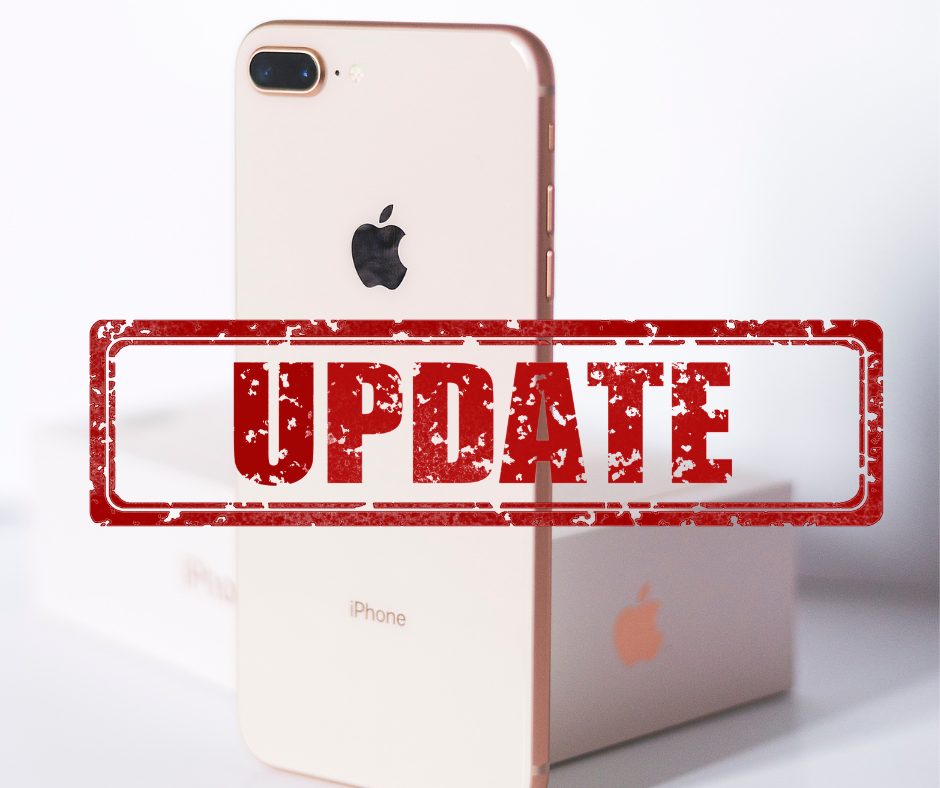
Which iPhones Will Stop Getting iOS Updates in 2025?
Share
📵 iPhones That Will Stop Getting iOS Updates in 2025
Wondering which iPhones will stop getting iOS updates this year? As of mid-2025, Apple hasn't officially confirmed the full list of devices that will miss out on iOS 19, but based on past trends and processor support, we can confidently predict which iPhones are nearing retirement. If you're using an older model, now is the time to prepare.
🔄 How Long Do iPhones Get Updates?
Apple supports iPhones with major iOS updates for approximately 5 to 7 years. Security updates may extend that window, but functionality and app compatibility begin to fade shortly after major update support ends.
| iPhone Model | Release Year | Last iOS Version | Years of Major Updates |
|---|---|---|---|
| iPhone 6s | 2015 | iOS 15 | 7 years |
| iPhone 7 | 2016 | iOS 15 | 6 years |
| iPhone X | 2017 | iOS 17/18* | ~7 years |
| iPhone XR | 2018 | iOS 18 (possibly last) | ~6–7 years |
📵 iPhones Likely to Miss iOS 19
Based on the expected iOS 19 release and Apple's trend of dropping older SoC chips (such as the A11 and A12 Bionic), these models are most at risk of losing update support:
- iPhone 8 / 8 Plus
- iPhone X / XR / XS
The iPhone SE (2nd gen), released in 2020 with the A13 chip, is likely to continue receiving updates, but older SE models may not.
🛑 Why these models?
iOS 18 is likely the last update for devices using A11 and A12 Bionic chips, based on past lifecycle cuts and leaked developer insights during WWDC 2025. Apple typically sunsets devices after 6–7 years.
🏴☠️ UK-Specific Insight: Why You Might Have to Upgrade
In the UK, the PSTI (Product Security and Telecommunications Infrastructure) Act now requires manufacturers to disclose minimum security support timelines. While Apple still provides some security updates for older models, unsupported devices may become non-compliant over time — especially if used in professional or public settings.
Good to know: Even after losing iOS updates, devices may receive limited security patches for 1–2 more years. But app developers tend to drop support quickly.
🤔 Why Does Apple Stop Supporting Older iPhones?
- Hardware limitations: Older chips can’t run new features (e.g., on-device AI, live transcription).
- App ecosystem shift: Developers drop support to streamline performance.
- Business strategy: Apple wants users on newer, more secure, and profitable devices.

📱 Should You Upgrade Right Away?
Not necessarily. Upgrading is entirely up to your budget and needs. If your phone is still running well and you practice safe browsing (especially on public Wi-Fi), you can continue using it.
However, consider upgrading if you experience:
- ❌ Security risks due to outdated software
- ❌ App compatibility issues
- ❌ Slow performance
- ❌ Battery drain
- ❌ Missing new features
- ❌ Frequent hardware issues
- ❌ Storage limitations
Think of your iPhone like a car — you don’t replace it every year, but you do keep an eye on performance and upgrade when necessary.
🛡️ Protect Your iPhone — Old or New!
Whatever model you’re using, protecting it physically matters just as much as digital security. From scratches to drops to daily wear — a solid case extends your phone’s life and resale value.
🎉 UK-only deal: Save 50% on MagSnap™ phone cases, made for your lifestyle.
✅ Final Thoughts
If you're on an iPhone 8, X, XR, or XS, now is the time to plan. Backup your data, assess your device’s condition, and track the iOS 19 rollout this fall. Even if you’re not ready to upgrade, you’ll be ready for what comes next.
Want Help Picking Your Next iPhone or Securing Your Old One?
Drop us a message. We’ll guide you on upgrades and go through the benefits of the latest iPhones.